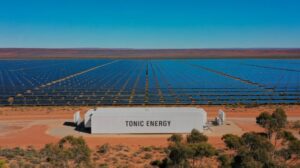A Roadmap to a Sustainable Energy Future

In the quest for sustainable energy sources, the tug-of-war between biofuels and fossil fuels has taken center stage. These two categories of fuels represent opposing approaches to meeting the world’s energy needs, and understanding their differences and impacts is crucial. Let’s embark on a journey through the world of biofuels and fossil fuels, exploring their unique characteristics, environmental implications, and the road ahead for a greener energy future. Let’s see the comparison: biofuels vs. fossil fuels.
The Basics: Fossil Fuels and Biofuels
Fossil Fuels
Fossil fuels are derived from ancient organic materials, primarily the remains of prehistoric plants and marine life. These hydrocarbon-based fuels, including coal, natural gas, and crude oil, have been the cornerstone of the world’s energy supply for centuries. Their extraction, processing, and combustion are responsible for a substantial portion of global carbon dioxide (CO2) emissions, contributing to climate change.
Biofuels
Biofuels, in contrast, are derived from renewable biological resources, such as plant matter (corn, sugarcane, and algae) and animal fats. The most common biofuels are ethanol, biodiesel, and biogas. The allure of biofuels lies in their potential to reduce greenhouse gas emissions, decrease reliance on fossil fuels, and promote sustainable energy production. They have gained popularity as a greener alternative to fossil fuels.
Environmental Impact
Fossil Fuels
Fossil fuels have a notorious environmental footprint. Their combustion releases CO2 and other greenhouse gases into the atmosphere, contributing to global warming. Additionally, the extraction and transportation of fossil fuels can lead to environmental degradation, including habitat destruction and oil spills.
Biofuels
Biofuels offer a more environmentally friendly alternative. They produce lower levels of greenhouse gas emissions compared to fossil fuels, making them a cleaner option. Additionally, biofuels can be carbon-neutral when the feedstock crops absorb as much CO2 during growth as is released during combustion.
Energy Efficiency
Fossil Fuels
Fossil fuels have a long-established reputation for their high energy density and efficiency. They provide significant energy per unit volume, making them well-suited for power-hungry industries and transportation.
Biofuels
While biofuels have a lower energy density compared to fossil fuels, they still offer respectable energy efficiency. Modern engines are often compatible with biofuel blends, and technological advancements are improving their performance.
Sustainability and Renewable Resources
Fossil Fuels
Fossil fuels rely on finite and diminishing reserves. Their extraction often leads to ecological destruction and negative environmental impacts.
Biofuels
Biofuels are rooted in renewable biological resources. Crops and algae used for biofuel production can be replanted and cultivated, promoting sustainability and reducing reliance on finite resources.
Government Regulations and Incentives
Fossil Fuels
Government regulations increasingly aim to reduce the environmental impact of fossil fuels. This includes emissions standards, carbon pricing, and incentives for cleaner technologies.
Biofuels
Biofuels benefit from government incentives designed to promote renewable energy sources and reduce greenhouse gas emissions. These incentives can include tax credits, renewable energy credits, and mandates for biofuel blending in conventional fuels.
Infrastructure and Compatibility
Fossil Fuels
Fossil fuel infrastructure is well-established and widely available. Gasoline and diesel fuels can be found at most fueling stations, and internal combustion engines are pervasive.
Biofuels
Biofuels can be compatible with existing fueling infrastructure, with many vehicles and engines able to run on biofuel blends or pure biofuels. However, some modifications and investments may be necessary for optimal performance.
Economic Considerations
Fossil Fuels
Historically, fossil fuels have been economically competitive due to their low cost of extraction and well-established supply chains. However, their price stability is often subject to geopolitical and economic fluctuations, impacting global energy markets.
Biofuels
Biofuels have faced challenges related to the cost of production and the competition for arable land between food and fuel crops. However, as technology improves and economies of scale are realized, the cost of biofuel production is becoming more competitive. Additionally, government incentives and subsidies can make biofuels financially appealing.
Technological Advancements
Fossil Fuels
Fossil fuel technologies have matured over centuries, resulting in highly efficient and reliable energy systems. However, the focus is shifting towards carbon capture and storage (CCS) technologies to reduce their environmental impact.
Biofuels
Biofuel technology continues to evolve, driven by innovations in feedstock selection, production methods, and biofuel crop cultivation. These advancements aim to enhance biofuel energy density and reduce their environmental footprint.
Public Awareness and Perception
Fossil Fuels
Public awareness of the environmental consequences of fossil fuel use has grown significantly. This has led to a greater push for cleaner and more sustainable energy sources.
Biofuels
Biofuels are generally perceived more favorably by the public due to their lower greenhouse gas emissions and renewable nature. However, there’s a growing understanding of the need for sustainable feedstock production and land-use practices.
Investing in a Greener Future: Biofuels vs. Fossil Fuels
As the world grapples with the pressing need to address climate change and reduce our environmental impact, the debate between biofuels and fossil fuels has never been more critical. Let’s delve deeper into the nuances of this ongoing conversation, considering their respective advantages, disadvantages, and the broader implications for a sustainable energy future.
1. The Environmental Imperative
The environmental impact of our energy choices is perhaps the most significant driver behind the push for biofuels. Fossil fuels, when burned, release vast amounts of carbon dioxide (CO2) and other greenhouse gases into the atmosphere, contributing to global warming and climate change. Biofuels, on the other hand, are inherently cleaner as they are derived from renewable biological sources, which means they can be carbon-neutral when managed sustainably.
2. The Technological Leap
Fossil fuel technology has enjoyed centuries of development, resulting in highly efficient energy systems. However, the emphasis is now shifting towards carbon capture and storage (CCS) technologies to mitigate their environmental impact. Biofuels, while making strides in efficiency, are also continuously evolving through innovations in feedstock selection, production methods, and cultivation practices.
3. Government Policies and Incentives
Governments around the world are increasingly adopting policies that favor cleaner, more sustainable energy sources. This includes emissions standards, carbon pricing, renewable energy credits, and incentives for the production and use of biofuels. These incentives can make biofuels financially attractive and encourage their adoption.
4. Economic Considerations
Historically, fossil fuels have been economically competitive due to their low extraction costs and established supply chains. However, their pricing can be vulnerable to geopolitical and economic fluctuations. Biofuels, initially challenged by production costs and competition for arable land, are becoming more economically appealing as technology advances and economies of scale are realized.
5. Public Awareness and Perception
The public’s understanding of the environmental consequences of energy choices is expanding. Fossil fuels are increasingly viewed in the context of their carbon footprint, which has led to a push for cleaner energy sources. Biofuels, perceived more favorably due to their lower emissions and renewable nature, are also subject to scrutiny concerning sustainable feedstock production and responsible land use.

Biofuels are used today at large scale, image source: Unsplash
6. The Future Energy Landscape
The global energy landscape is in the midst of a significant transformation. The transition towards more sustainable energy sources, including biofuels, is underpinned by technological innovations, the pursuit of environmental responsibility, and growing public awareness of the impact of fossil fuels. This change is likely to lead to a gradual integration of biofuels and other renewables into the energy mix, alongside efforts to reduce the environmental impact of fossil fuels.
Conclusion: A Changing Energy Landscape
The choice between biofuels and fossil fuels is influenced by a multitude of factors, including environmental goals, economic considerations, technological advancements, government regulations, and public awareness. While fossil fuels have long been the dominant source of energy, the global shift towards sustainable and environmentally responsible energy production is undeniable.
The future energy landscape is likely to see a gradual transition towards biofuels and other renewable energy sources. This transition will be facilitated by advancements in technology, incentives for sustainable practices, and increasing public awareness of the environmental impact of fossil fuels.
Ultimately, the choice between biofuels and fossil fuels is not a binary one but involves a nuanced and multifaceted assessment of various factors. As we strive for a greener and more sustainable energy future, both biofuels and fossil fuels will continue to play important roles in meeting our energy needs while minimizing environmental impact. The path forward is one of balance, responsibility, and a shared commitment to a healthier planet.







